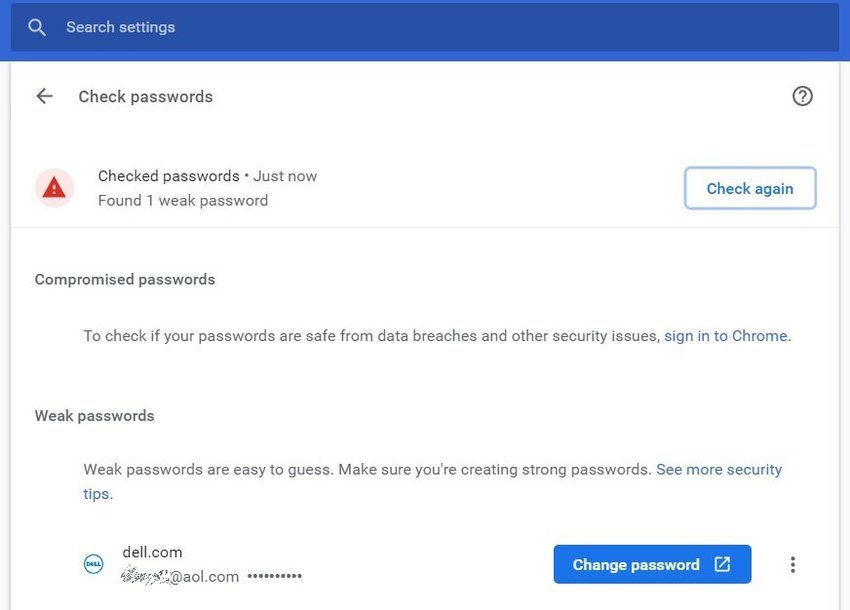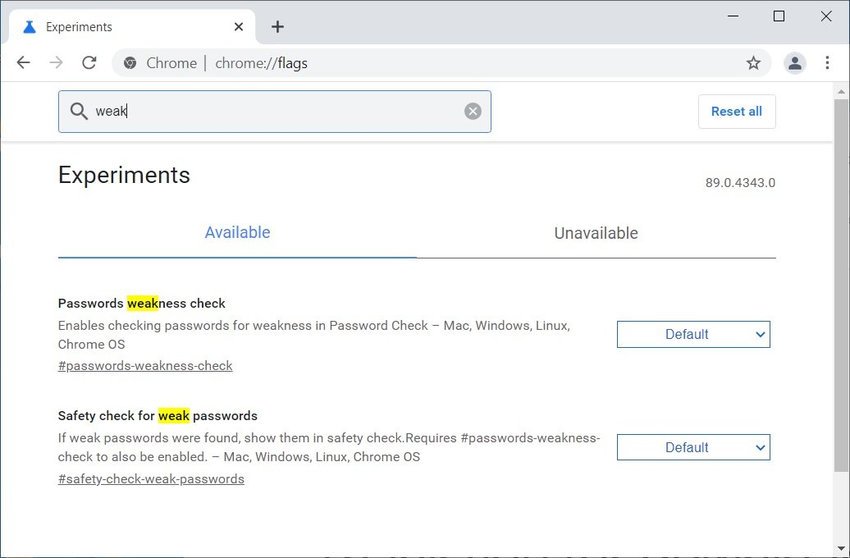The Google Chrome σύντομα θα σας προειδοποιεί όταν χρησιμοποιείτε αδύναμους κωδικούς πρόσβασης. Η service it is currently in the canary and is expected to come to the stable version.

The security of your online accounts depends to a large extent on how strong your passwords are and, if they are too easy, hackers could break into your account.
For Chrome to make sure that the users του δεν χρησιμοποιούν αδύναμους κωδικούς πρόσβασης, πρόσθεσε μία νέα mode security check that will notify you if the stored code is weak.
The new feature comes in addition to the existing one where it notifies you if a stored password is found in a database with compromised passwords.
Google will automatically detect and mark weak passwords when performing a security check, as shown below.

The new Chrome security check feature is not yet available on the fixed channel, but you can enable it in Chrome Canary by following these steps:
- In the Browser Chrome Canary open the tab Chrome: // flags
- Κάντε αναζήτηση της λέξης "weak" (αδύναμο) και ενεργοποιήστε τις σημαίες: "Safety check for weak passwords" (Έλεγχος ασφάλειας για αδύναμους κωδικούς πρόσβασης) και "Passwords weakness check" (Έλεγχος αδυναμίας κωδικών πρόσβασης).
 3. When prompted to restart your browser, do so.
3. When prompted to restart your browser, do so.
To check your weak passwords using a security check, just go to Settings> Security Check> Check Now to perform a security check on your passwords.
Μόλις κάνετε κλικ, η Google θα σαρώσει αυτόματα τους αποθηκευμένους κωδικούς πρόσβασης και θα επισημάνει τους πιο αδύναμους. Μπορείτε να κάνετε κλικ στο κουμπί "Review" (Έλεγχος) για να κάνετε αλλαγές στον αποθηκευμένο κωδικό πρόσβασης.





